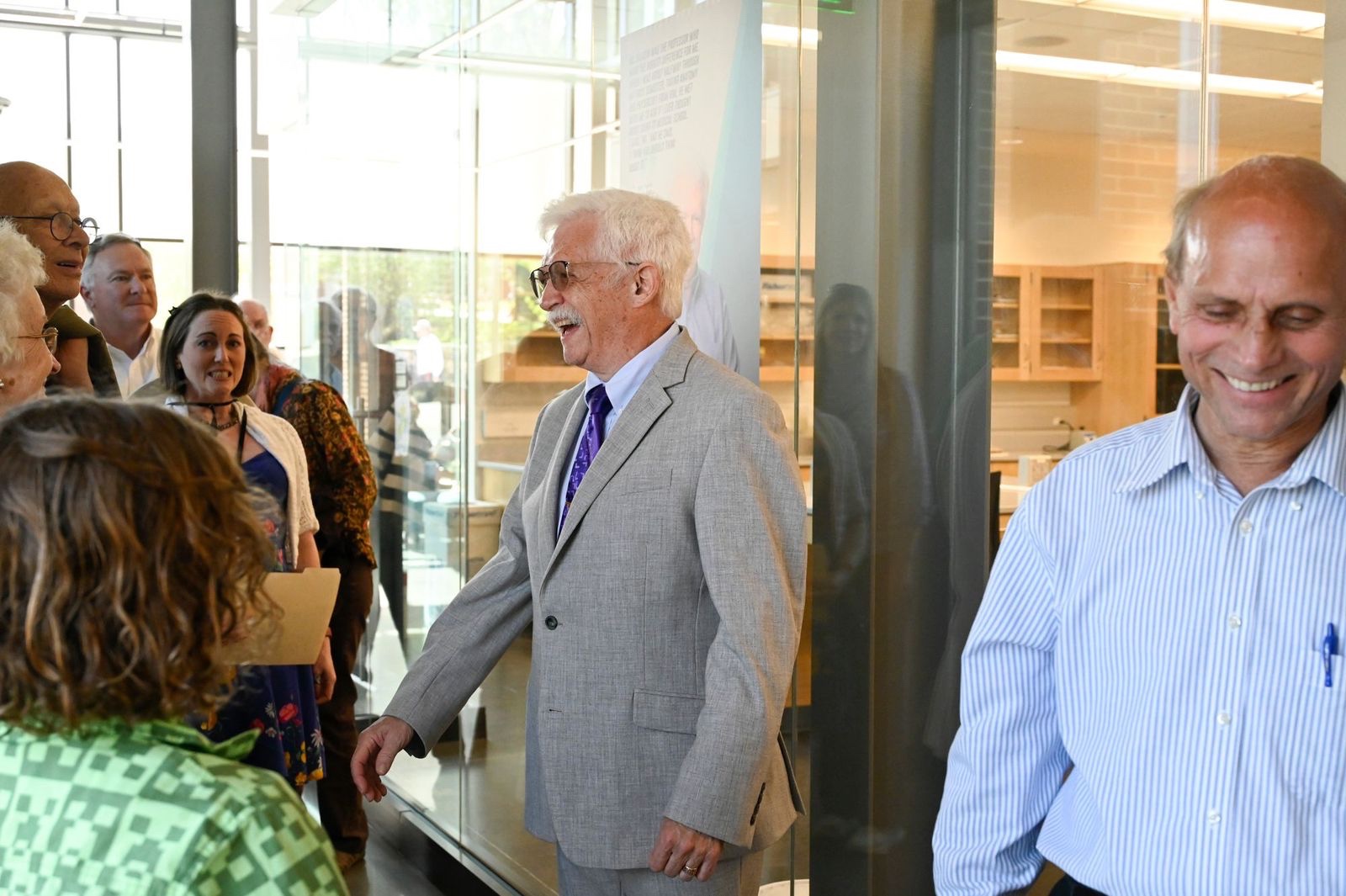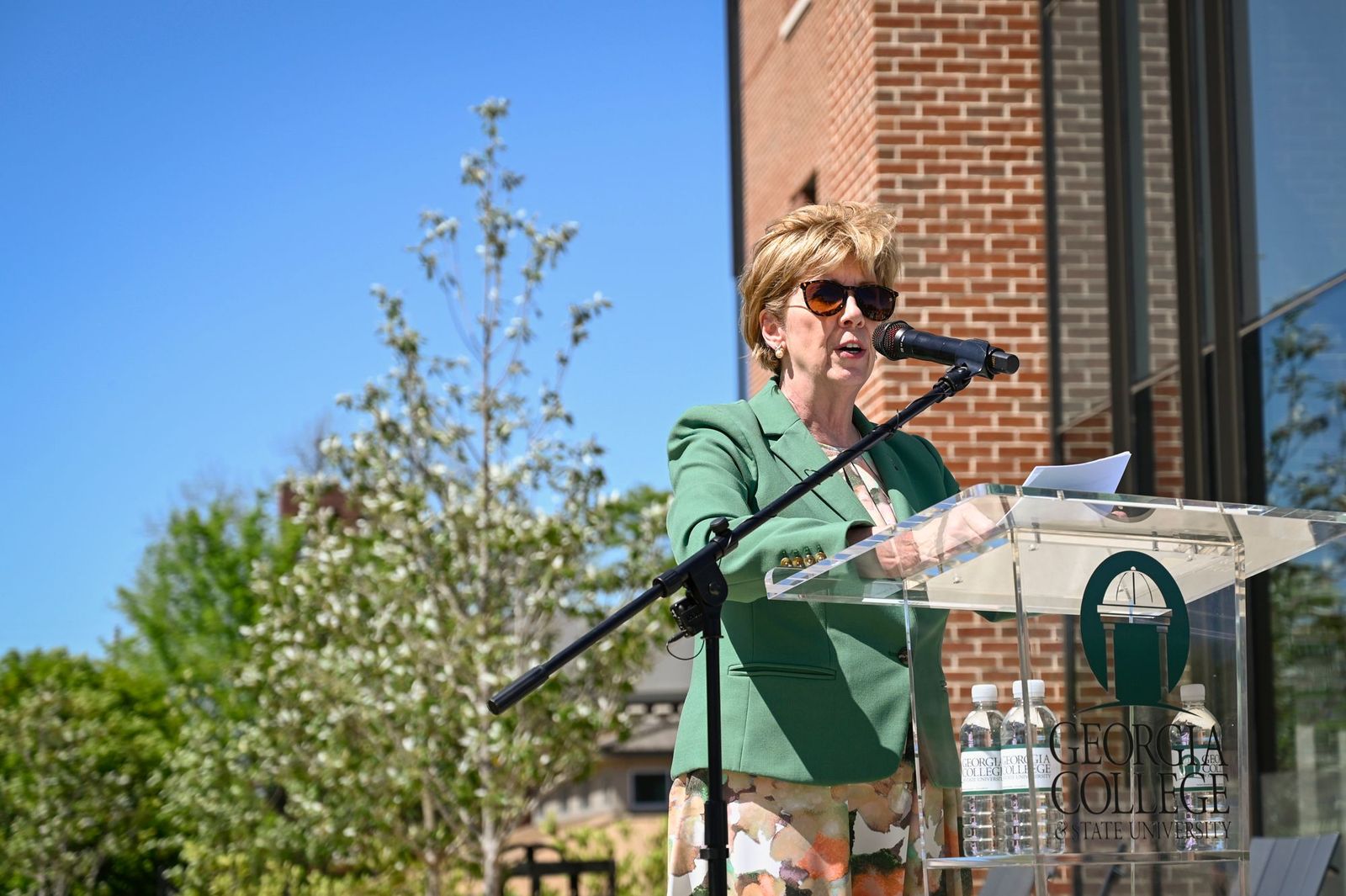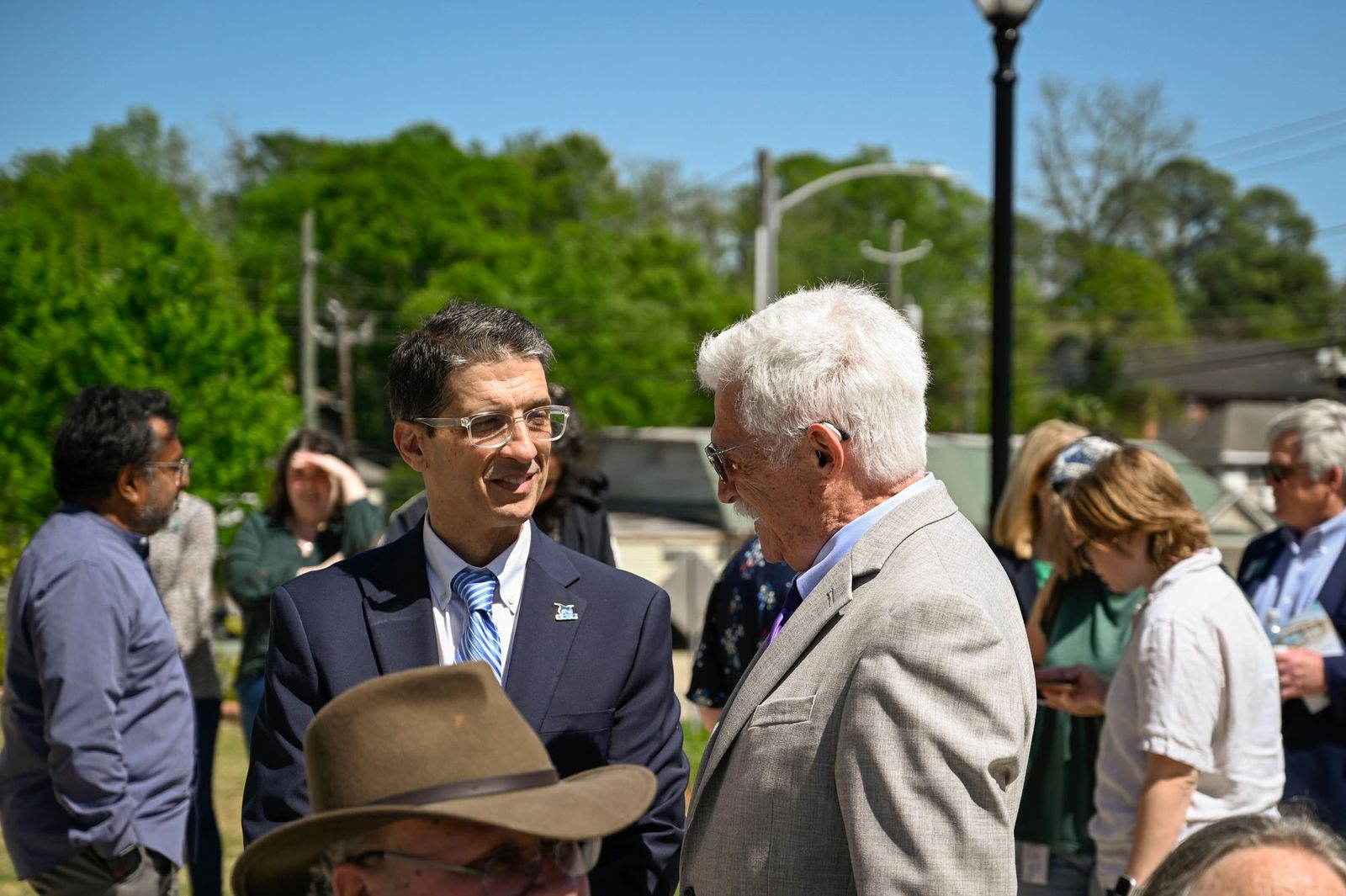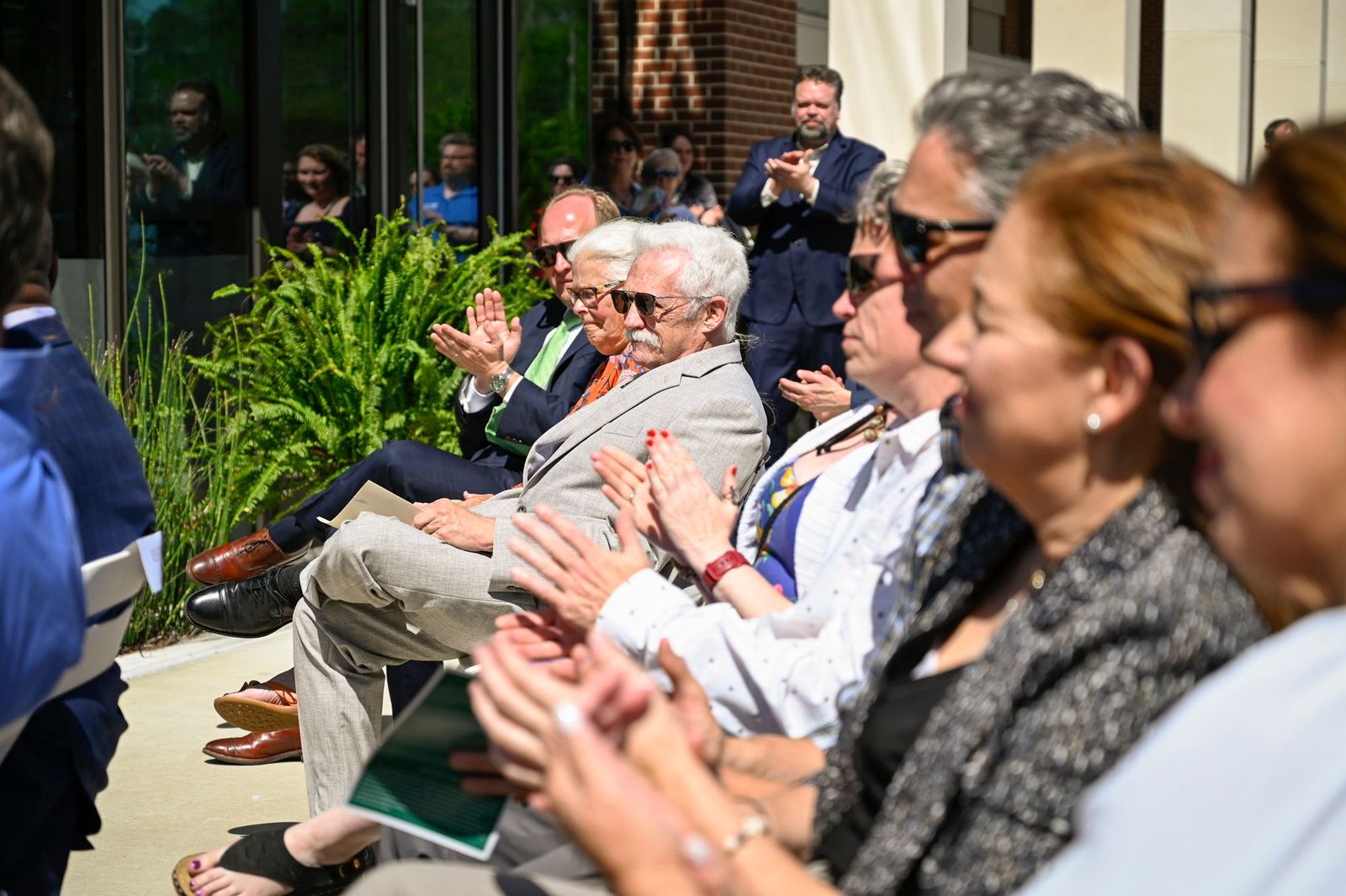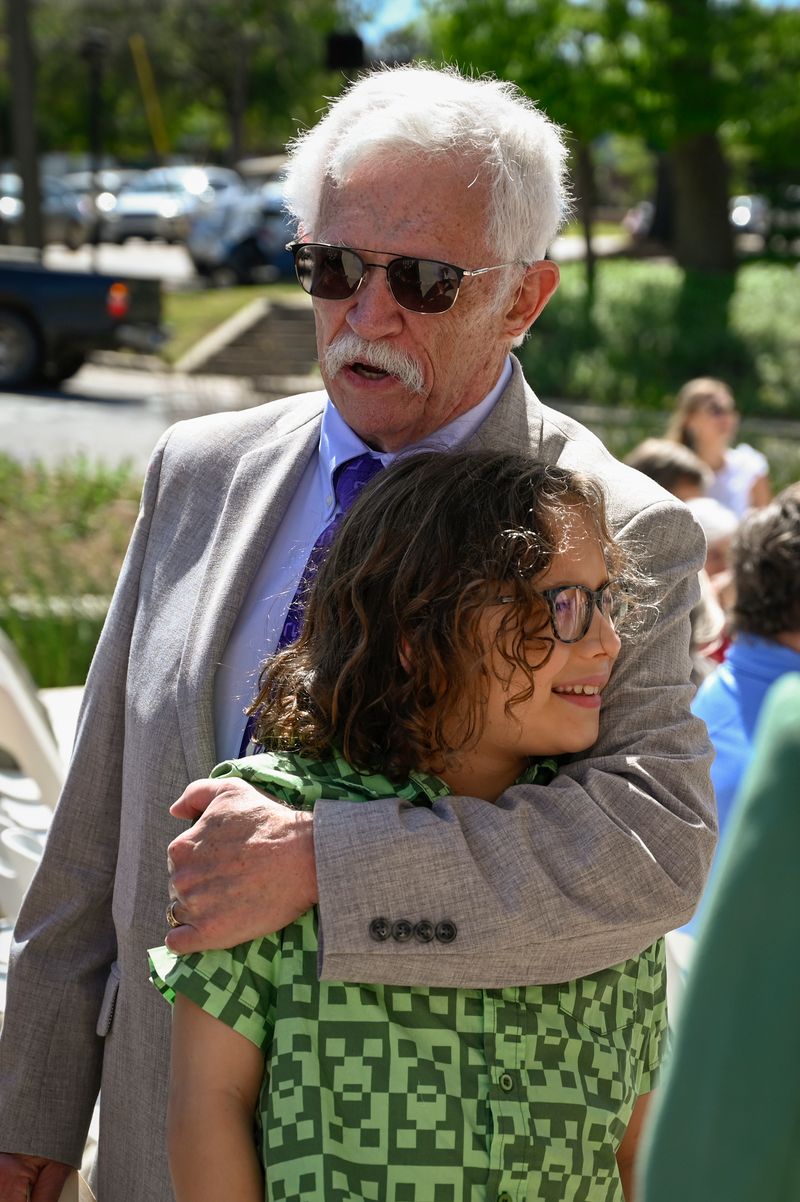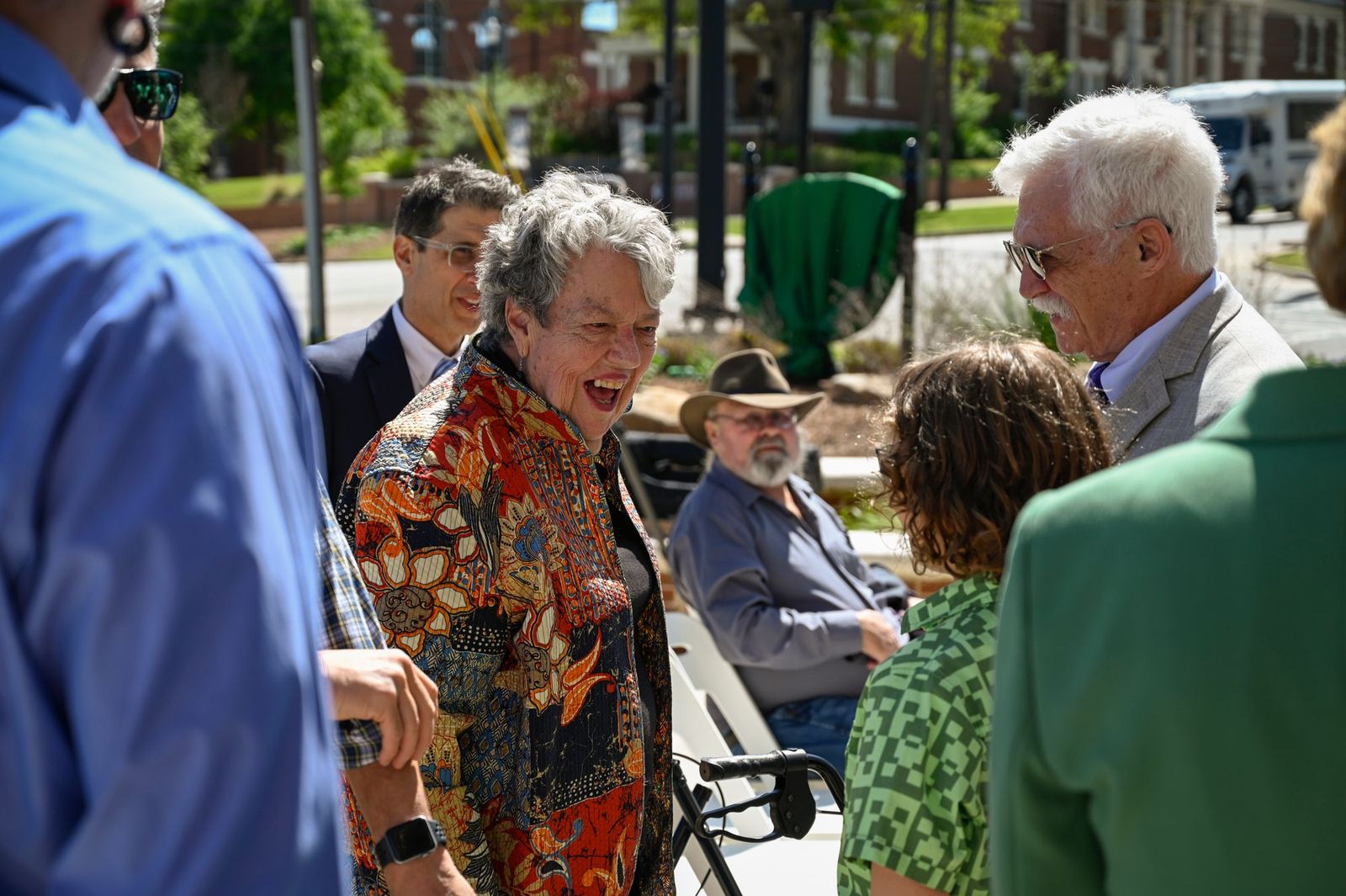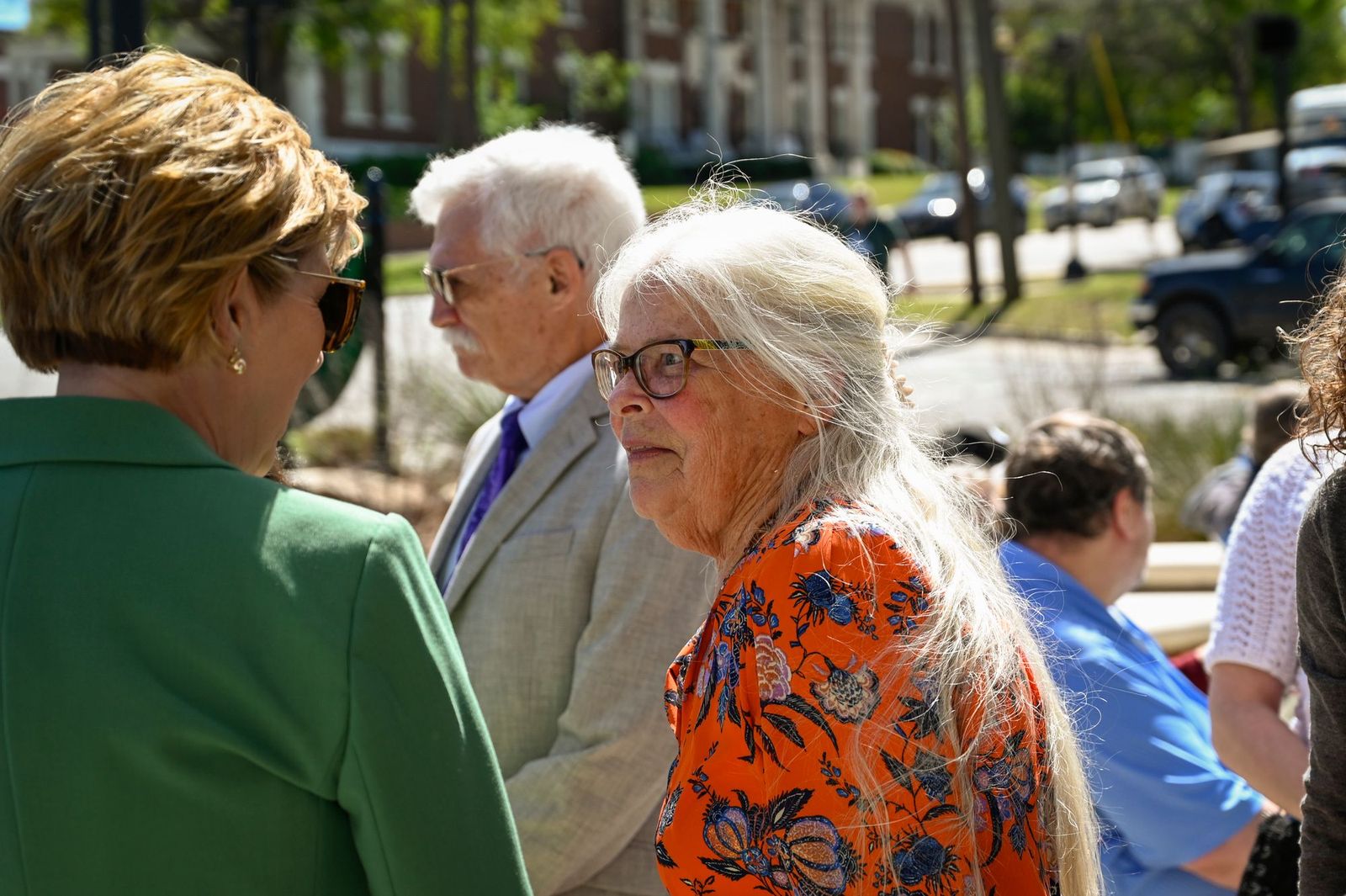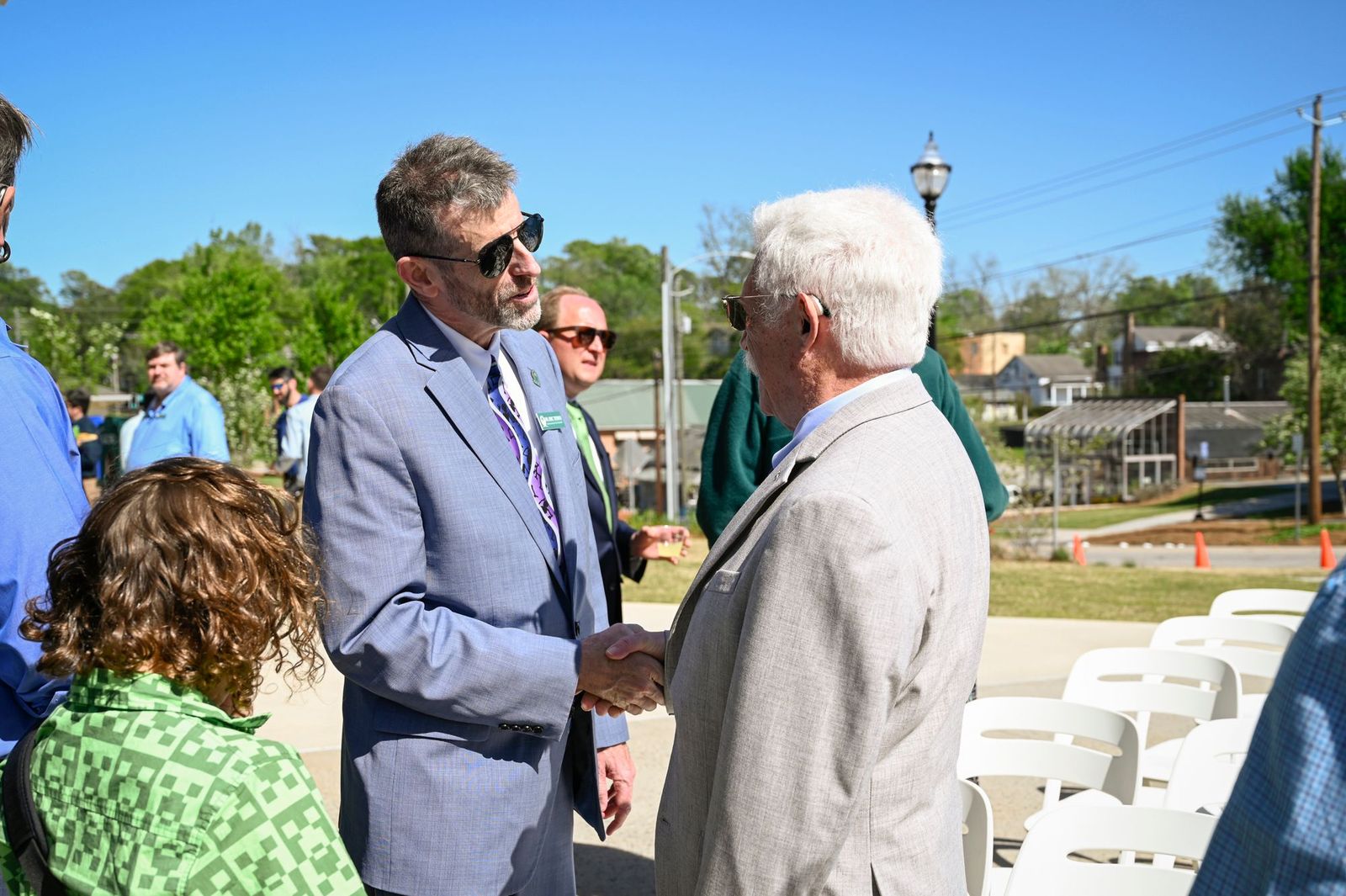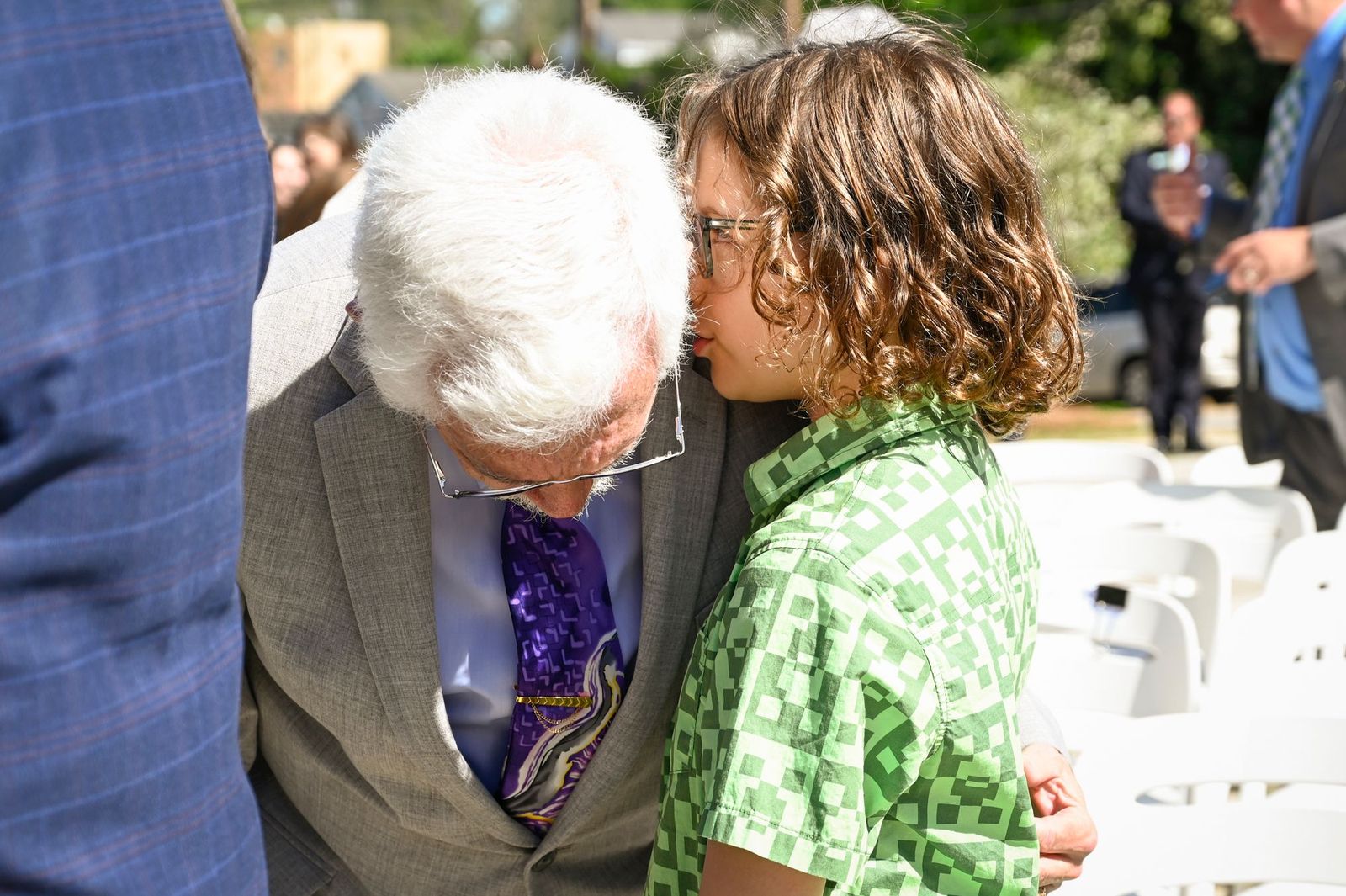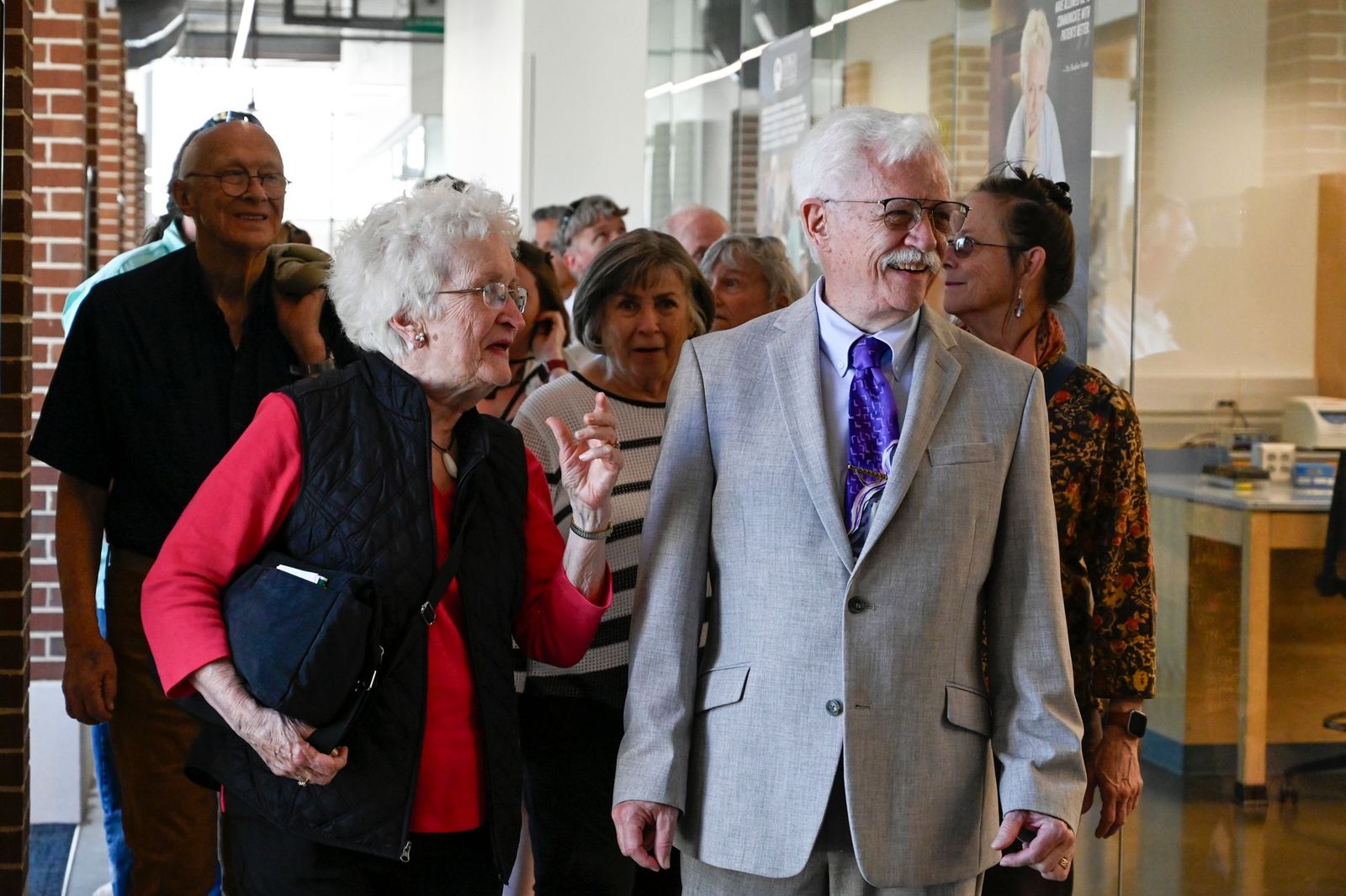GCSU’s newest science building is renamed to honor beloved biology professor
T
he Integrated Science Complex at Georgia College & State University is now the Dr. Kenneth S. Saladin Integrated Science Complex—named after the distinguished professor emeritus of biology for the lasting impact he has made on science and students.
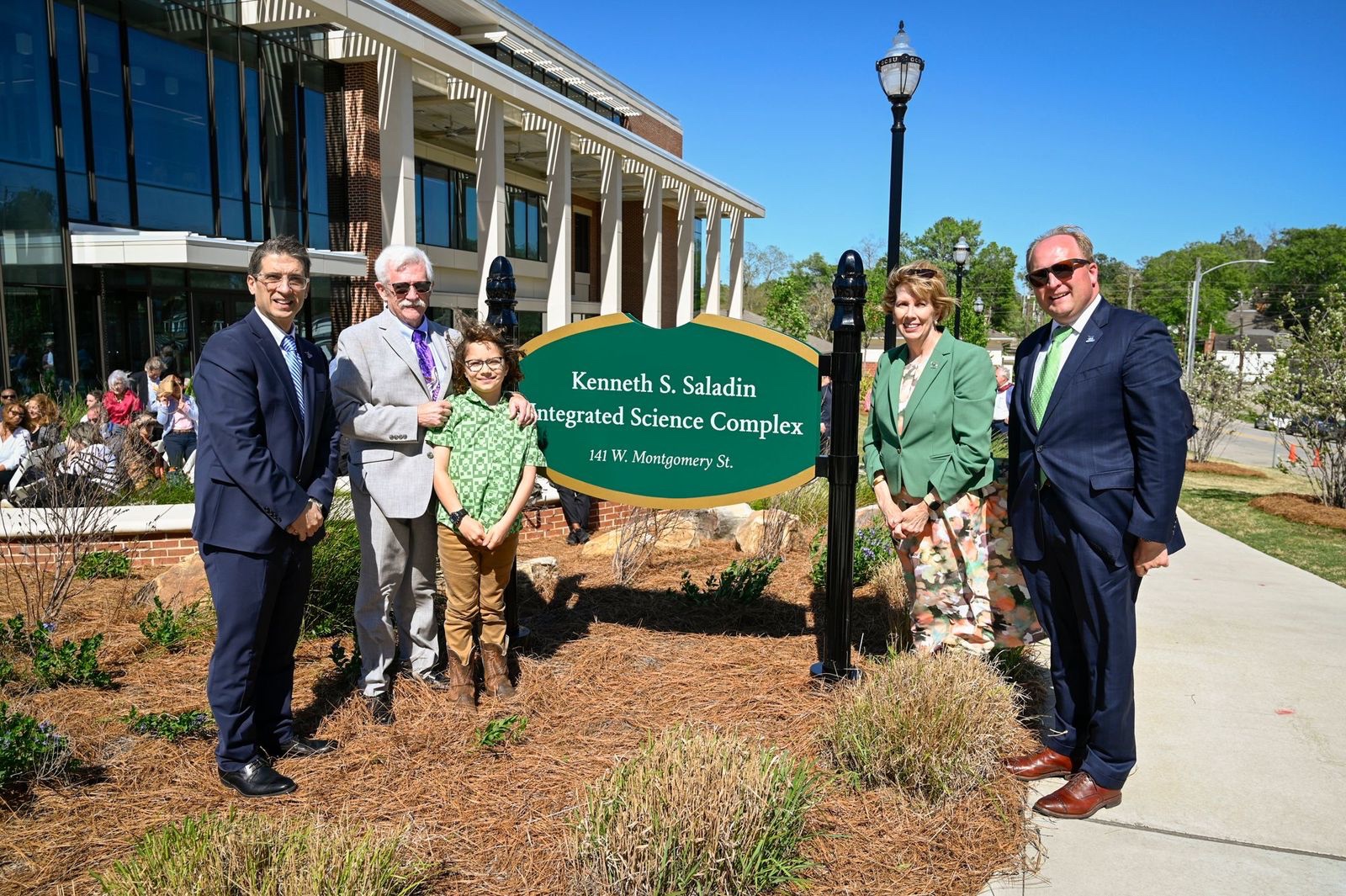
Saladin was an outstanding and dedicated educator at Georgia College. He began publishing a textbook in 1997 that’s now in its 10th edition and has become the single largest selling textbook in the history of McGraw-Hill Education. He generously contributed royalties earned from his publishing successes that benefit the university and students in numerous ways.
This has made Saladin the university's largest philanthropic donor.
His first major gift was an endowment to the William Wall Museum of Natural History recognizing Saladin’s colleague and former department chair who created the museum.
He endowed the university’s Honors College, choosing to name it for his friend and former colleague, Dr. John E. Sallstrom. He also provided scholarships to support study abroad and research ventures for honor students.
“Naming the Integrated Science Center for Dr. Kenneth Saladin is a fitting and appropriate tribute to a person who provided and continues to provide extraordinary service and support to the university, spanning more than 40 years,” said Georgia College President Cathy Cox.
At the reception Cox said, “It is our pleasure to honor you today Dr. Saladin and to name a facility that will demonstrate to generations of Georgia College students the transformative impact of the best student instruction, mentorship and guidance.”
Saladin and his family were present at the ceremony, including his young grandson. Saladin accepted the honor graciously, saying it’s “unimaginable” a “beautiful building” would bear his name “for the next century or more.”
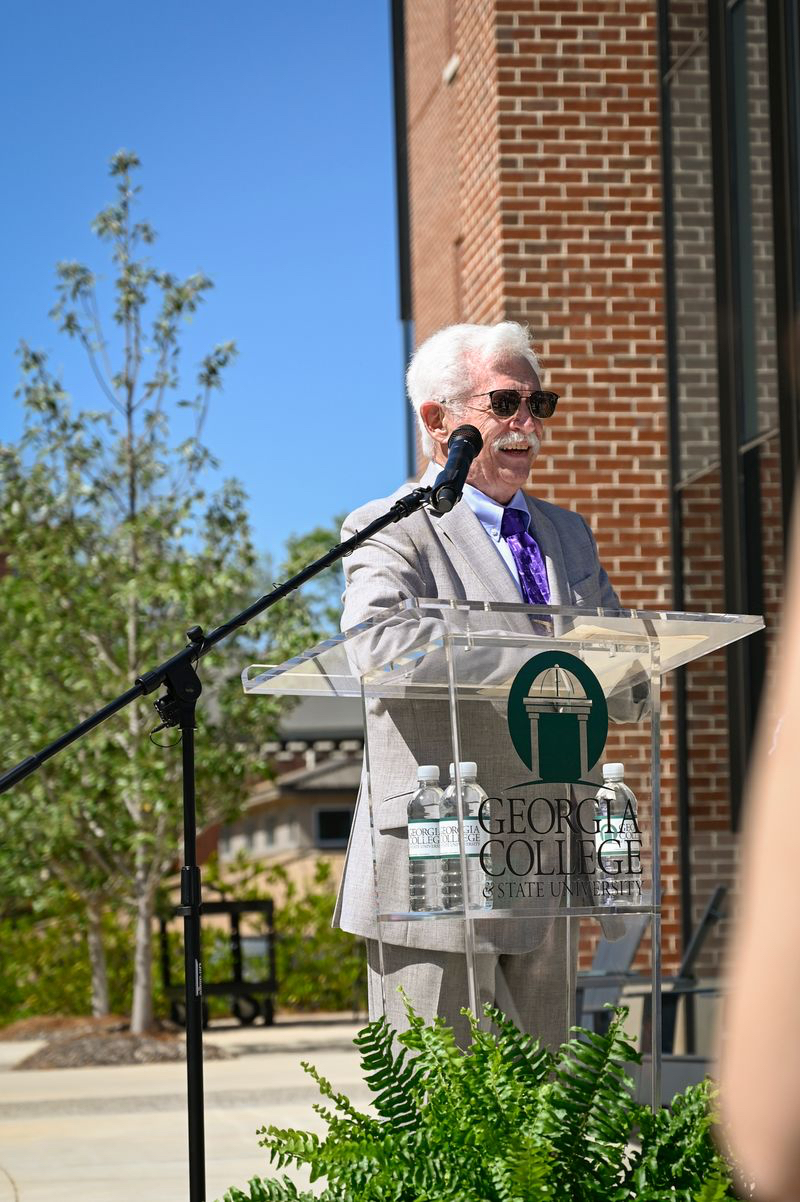
He said he felt “indebted to so many people.”
“An honor of such a magnitude gives me paradoxical feelings of pride and humility, and that's a tricky emotional balancing act,” Saladin said. “This is the first time in 52 years that Georgia College has named a new building for someone—that was the Maxwell Student Union. This day is truly the capstone of my career.”
“Dr. Saladin’s amazing generosity supports both undergraduate and graduate research within the department,” said Dr. Indiren Pillay, professor of biology and chair of the department of biological and environmental sciences.
Saladin continues to be instrumental in the sciences at Georgia College.
More than a decade ago, he devised a pre-medical program where he mentored biology students interested in medicine. The Pre-Med Mentorship Program at Georgia College—through Saladin’s endowment of a chair position—ensured mentorship would endure following his retirement.
Students studying under Saladin and his successor, Dr. Ashok Hegde, have earned a 100% successful admissions rate to medical schools for more than 14 years.
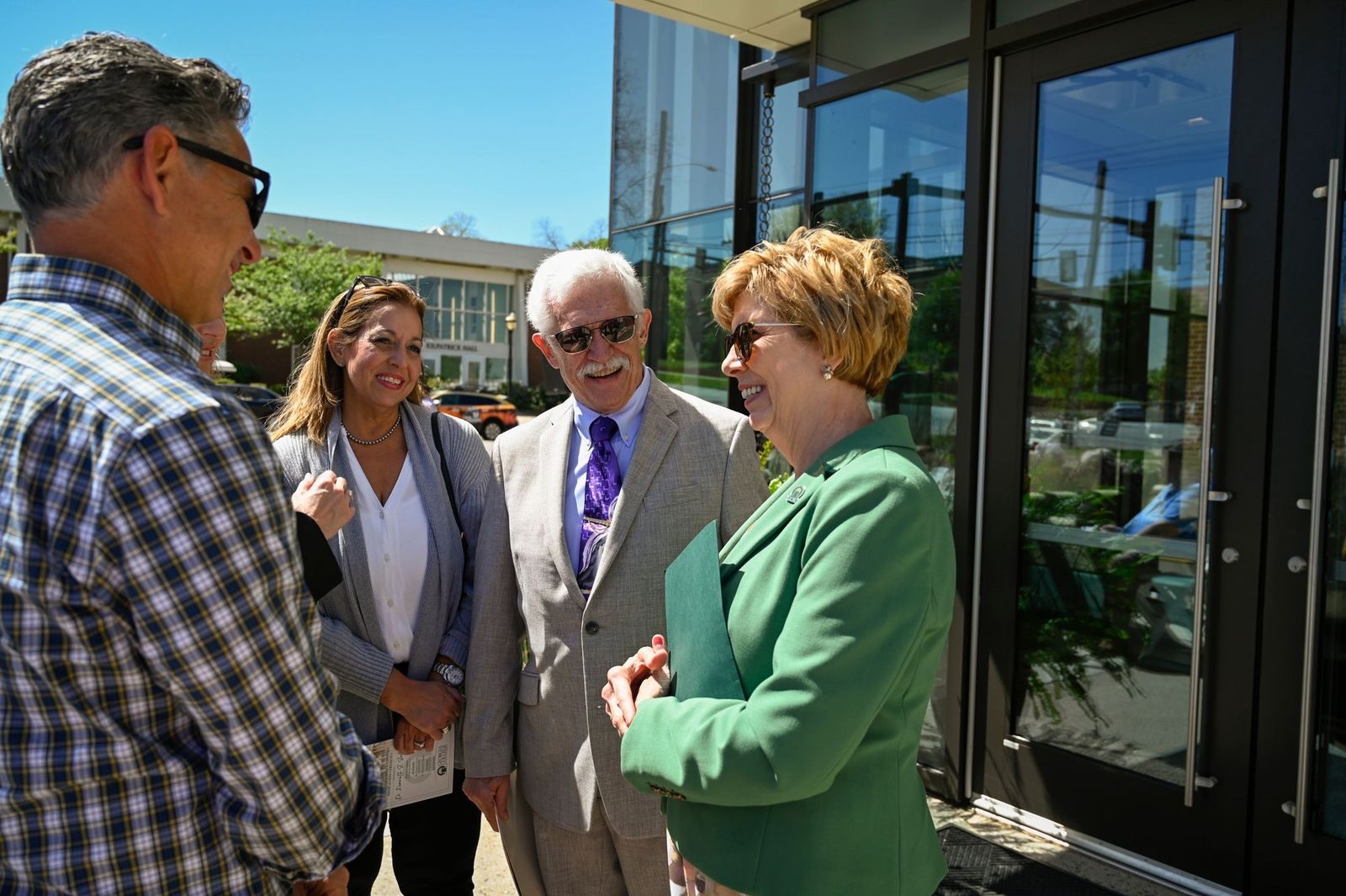 More recently, Saladin has remained a faithful supporter of a variety of programs. He is especially dedicated to promoting biology and environmental science students, who engage in undergraduate research.
More recently, Saladin has remained a faithful supporter of a variety of programs. He is especially dedicated to promoting biology and environmental science students, who engage in undergraduate research.
“This consistent means of support helps us purchase research supplies and instrumentation for students,” Pillay said, “as well as provide travel support for professional journal publications and conferences, so students can disseminate their work.”
Junior Heather Vincent of Talking Rock, Georgia, is majoring in biology with double minors in chemistry and global health studies. She received a Saladin Scholarship through the Honors College. As student in the Pre-Med Mentorship Program, Vincent has met and spoken with Saladin many times.
She said his generosity helped her “gain firsthand insight” on what it means to be a biologist and researcher.
“I learned how to deal with hurdles, as my experiments have failed and gained vital knowledge on how to adapt, as my project changed over time,” Vincent said. “Having this opportunity to be so involved in research on-and-off campus has been the largest factor in the shaping of my own leadership style, as well as my own academic development.”
Vincent said the science complex has become “a vital place to foster student curiosity, creativity and development.”
Saladin is deserving of his name on the building because of his commitment to advance students, who “will continue to have a legacy of excellence,” she said.
The Integrated Science Complex officially opened in September 2021—a $22.1 million building with 43,000 sq. ft. of teaching and research labs for chemistry and biology.
Now bearing Saladin’s name, the science building has common Georgia College hallmarks, such as a rocking chair front porch and ample brickwork. It also boasts modern architectural features, which include floor-to-ceiling windows and interior glass walls that put science on display.
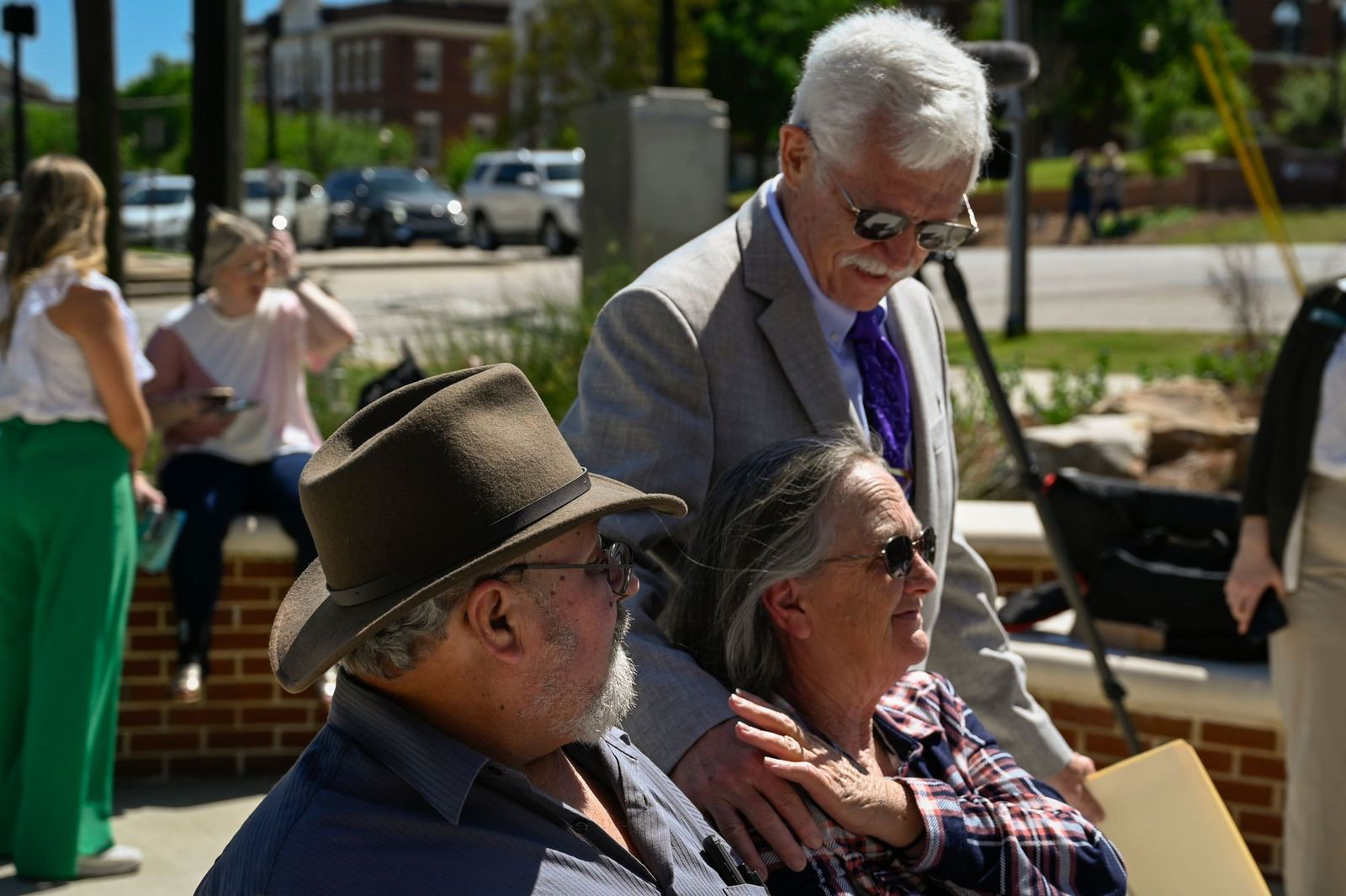 The building was a necessity. Georgia College has seen a 107% increase in bio-science majors during the past 12 years. Space was cramped for labs, classes and faculty offices in the university’s aging Herty Hall, built in 1954, located across Montgomery Street.
The building was a necessity. Georgia College has seen a 107% increase in bio-science majors during the past 12 years. Space was cramped for labs, classes and faculty offices in the university’s aging Herty Hall, built in 1954, located across Montgomery Street.
In the next two years, Herty Hall will undergo extensive renovations with support from the Georgia General Assembly and University System of Georgia Board of Regents.
Saladin doesn’t consider the renaming to be like “a ski lift,” as high as one can possibly go. He said he has more work to do to “fully earn” the building being renamed in his honor.
He’s currently building an endowment to support the cost of student research, especially in the sciences.
Its generous efforts like these, as well as Saladin’s educational philosophy and vision—integrating research into the learning process—that makes him a perfect example of Georgia College's teacher-scholar model.
“The Integrated Science Complex will have a lasting impact on our quest to advance the academic mission of our university through teaching, learning, research and scholarship, all of which focuses on serving our students,” said Dr. Costas Spirou, provost and vice president for Academic Affairs.
